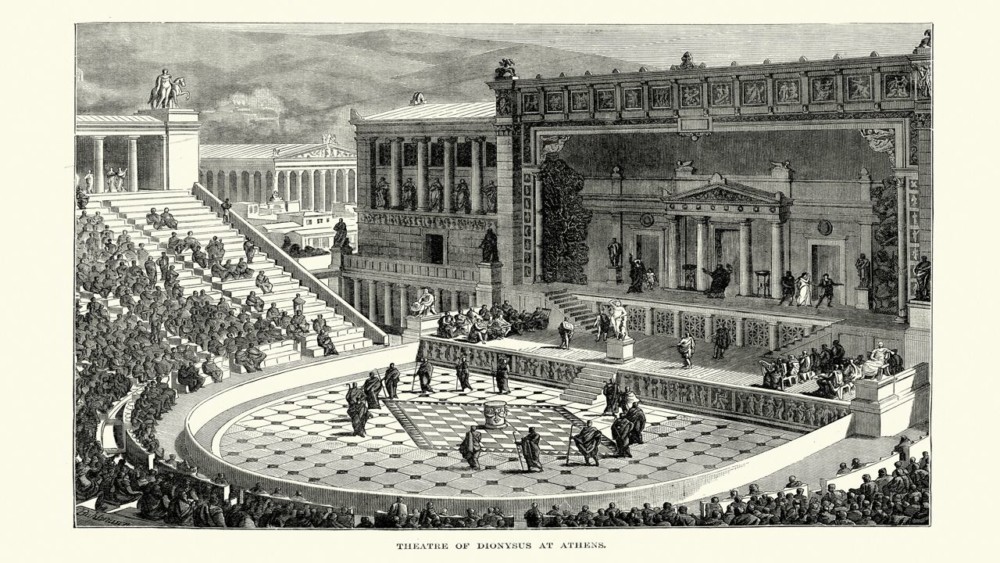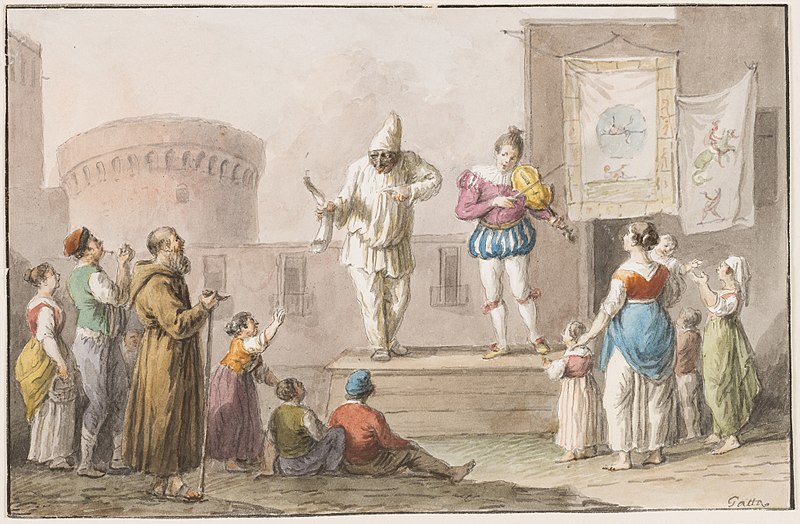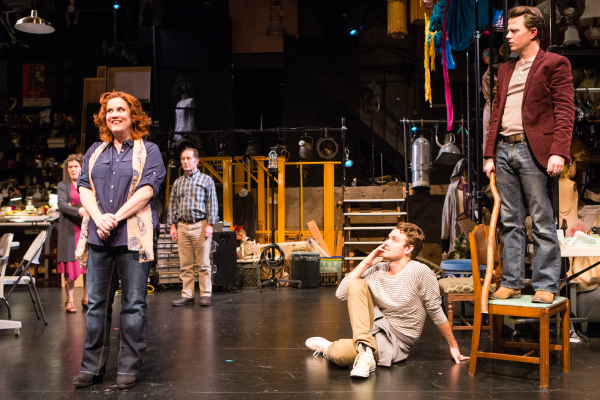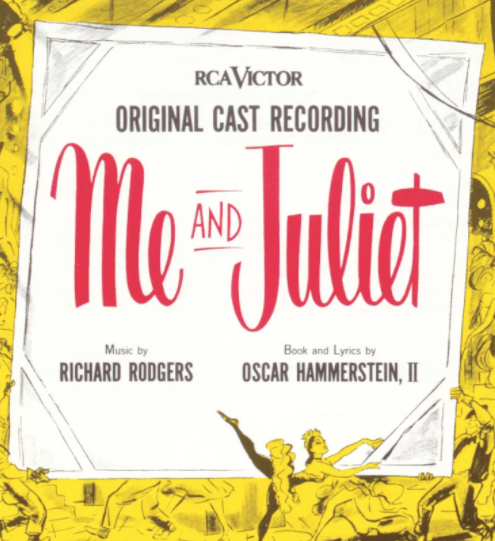
By Beatrice Williams-Rude
In 5th Century BC Greece where, arguably, theater as we know it emerged, performances were given in huge outdoor venues with audiences numbering many thousands.
In the pre-pandemic 21st Century AD New York City, while there are theaters that have several thousand seats, designed mostly for musicals, virtually every empty broom closet has been turned into an off off-Broadway theater.
Performers used to be trained to project. Now, particularly in the massive houses, microphones are used, to the horror of purists.
Theater in Ancient Greece was popular entertainment. In later periods, especially in Europe, it became an amusement for the upper classes, although there was always street theater for the masses and through the 16-18th centuries Commedia dell’ Arte, which was both scripted and improvised.


Commedia dell’Arte
The salon, in which plays, readings, musical performances and works of art were presented in the homes of the elite, began in the early 18th century, a product of the Enlightenment. Women held sway in the salon world.
How will theater evolve in the pandemic world? Will there ever be a post-pandemic world? Among the adaptations are filming live performances to be shown on television – which really harkens back to early TV.
The stage is the performer’s medium; movies are the director’s. In the live-filmed play the players hold sway; no director is guiding the audience via closeups.
But is it “theater’ without “the big black giant who looks and listens with thousands of eyes and ears”? (R&H, Me and Juliet)
We’ve gone from the largest physical venues (amphitheaters in Ancient Greece) to the smallest (Off Off-Broadway). Dwarfing them in terms of audience numbers is the Internet, in which the tiniest of devices- cell-phones -can be used to view the largest productions.
The theater is magical -that interaction of performers and the audience. How can a performer “bring the house down” when there is no house?


Terrence McNally’s And Away We Go (photo Al Foote III)
Historically, people have gone to the theater; will the theater now come to the people, giving new meaning to “road show”? Will the itinerant minstrel once again be front and center? Or will a new salon age emerge with performances presented in the capacious homes of the elite rather like backers’ auditions in the pre-pandemic world?
Referencing Thornton Wilder’s history of mankind, The Skin of Our Teeth, Terrence McNally wrote a delightful history of the theater in the form of a play, And Away We Go. I wish he were here to prognosticate about the future of the theater.


“The theater is dying; the theater is dying; the theater is practically dead …” goes the song in Me and Juliet. But it continues “year after year there is something to cheer” and concludes that the theater won’t lie down and die. So, whither the theater? It won’t wither, that much is certain.

















